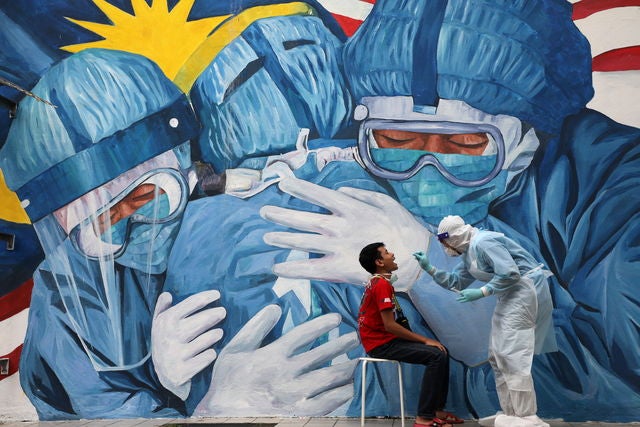Building resilient health systems: change cannot wait
A new World Bank report says investing in public health, disease prevention, and primary care are essential to fighting the next pandemic – and building a better defense against future global crises

“Change cannot wait,” said the World Bank in its new report on the importance of building resilient health systems. Both a call to action and a framework for creating health systems that can withstand global shocks like COVID-19, the report – which had contributions from Exemplars in Global Health and partners – urges governments to increase their ability to respond to the even bigger impacts we are likely to see in the future. Urbanization, climate change, land use changes, fragility and conflict, and zoonotic spillovers, the World Bank said, are all future risk factors that demand our action today. Chronic disease burdens and aging populations, it said, only increase the risk for health systems worldwide.
“Governments need to improve their health sector governance, cross-sectoral partnerships based on a One Health approach that prioritizes health service delivery, and pandemic prevention, preparedness, and response (PPR),” states the report, which identifies specific actions governments can take to strengthen their health systems. Among them are investing in robust public health institutions and agile, evidence-based decision making for health crises; improving awareness and early warning functions; expanding community health workforce and building multi-disciplinary competencies for PPR; prioritizing and tracking investments in PPR; strengthening risk communication and community engagement; investing in primary health care with integrated public health functions; and enhancing quality legal and regulatory frameworks.
“A country that is not prepared cannot be resilient,” said Juan Pablo Uribe, Global Director, Health, Nutrition & Population, and the Global Financing Facility. “Investments in health system resilience need to go hand-in-hand with the broader health agenda, including advancing toward Universal Health Coverage (UHC), to enable equity,” he added.
The most impactful and cost-effective investments countries can make, the report says, are high-yield ones that strengthen public health functions, health promotion, disease prevention, and primary health care.
To help governments focus their health systems spending, the report also presents a stratified guide that divides spending options across three tiers, each of them prioritizing a different level of impact. Risk reduction, prevention, and community preparedness make up the most important of all tiers and is the minimal step countries can take to help increase their health systems resiliency. Tier two addresses detection, containment, and mitigation activities, and is followed by the third tier, which includes advanced case management and surge response. The last tier, the report states, is the most expensive.
But Mamta Murthi, the World Bank’s Vice President for Human Development said that making clear long-term commitments to increasing health systems resiliency is essential. “With shrinking health budgets following the COVID-19 crisis response, countries need to set priorities for their health spending, including on areas such as public health, disease prevention, and primary health care to protect human capital and ensure health services for all, especially the poorest and most vulnerable.”
The World Bank says healthy systems resiliency cannot be created by the health sector alone. Cross-sectoral partnerships – with civil society, the private sector, and donors – are required. Additionally, a robust health governance helps countries prioritize and track investments to improve early warning functions, expand community health workforces and engagement, and reshape health service delivery.
Countries can achieve health systems resiliency when they are aware of threats and risk drivers, become agile in response to evolving needs, are absorptive to contain shocks, adaptive to minimize disruptions, and ultimately, are transformative based on lessons learned. They are also systems that intrinsically reduce mortality and morbidity, enable equity and public trust, and improve health and productivity. Conversely, countries that are unable to make the necessary investment to strengthen public health preparedness and make progress toward universal health coverage will create growing inequalities that can threaten global stability, and prosperity.
How can we help you?
believes that the quickest path to improving health outcomes to identify positive outliers in health and help leaders implement lessons in their own countries.
With our network of in-country and cross-country partners, we research countries that have made extraordinary progress in important health outcomes and share actionable lessons with public health decisionmakers.
Our research can support you to learn about a new issue, design a new policy, or implement a new program by providing context-specific recommendations rooted in Exemplar findings. Our decision-support offerings include courses, workshops, peer-to-peer collaboration support, tailored analyses, and sub-national research.
If you'd like to find out more about how we could help you, please click . Please consider so you never miss new insights from Exemplar countries. You can also follow us on Twitter and LinkedIn.
